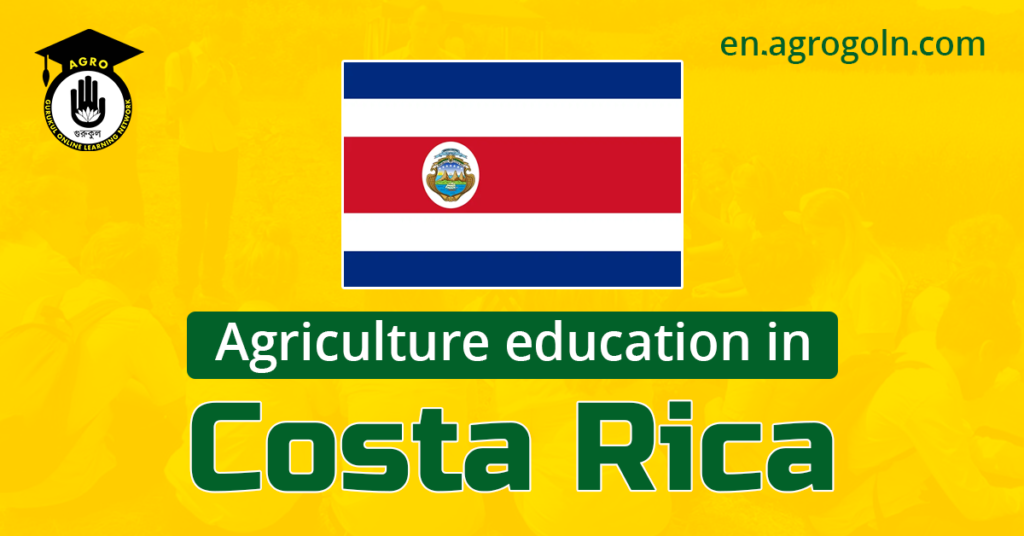Agriculture has always been an integral part of Costa Rica’s economy and culture. From the early cultivation of cacao, coffee, and bananas to today’s diversified agricultural exports, Costa Rica has a rich agricultural heritage. Recognizing the importance of this sector, Costa Rica has invested in agriculture education, aiming to ensure sustainable and productive farming practices for future generations. This article will explore the current state, historical context, and future prospects of agriculture education in Costa Rica.
Historical Background
In the early 20th century, agriculture in Costa Rica was dominated by a few major crops like coffee and bananas. The country’s economy was heavily dependent on these exports. However, with the increasing recognition of the environmental impacts of monoculture and the economic risks associated with depending on a limited number of crops, there was a growing need for a more diversified and sustainable approach to farming.
By the mid-20th century, Costa Rica began to understand the importance of agricultural education in promoting sustainable farming practices, diversifying agricultural production, and enhancing rural development. The government started investing in agricultural schools, research institutes, and training programs.
Primary and Secondary Education
In Costa Rica, the importance of agriculture is introduced to students at an early age. Many primary schools, especially in rural areas, incorporate basic agricultural education into their curriculum. This often includes lessons on local plants, animals, and basic farming practices.
At the secondary level, there are specialized agricultural schools, known as “Escuelas Agropecuarias.” These schools offer a blend of traditional academic subjects and hands-on agricultural training. Students can learn about various aspects of farming, from crop cultivation and animal husbandry to agricultural economics and agri-business.
Tertiary Education and Research Institutes
Costa Rica boasts several renowned institutions dedicated to higher agricultural education and research:
- Universidad de Costa Rica (UCR) – One of the country’s most prestigious institutions, UCR offers undergraduate and postgraduate programs in agricultural sciences. Their research and extension programs aim to promote sustainable agricultural practices and technologies.
- Instituto Nacional de Aprendizaje (INA) – This is a technical training institute that offers programs in various agricultural disciplines. Students can pursue specialized courses in areas such as organic farming, aquaculture, and agri-business.
- Centro Agronómico Tropical de Investigación y Enseñanza (CATIE) – Located in Turrialba, CATIE is a regional center dedicated to research and graduate education in agricultural sciences and natural resource management. It serves not just Costa Rica but the entire Latin American and Caribbean region.
Extension Programs and Community Engagement
Costa Rica understands the importance of extending agricultural knowledge beyond the classroom. The country has a robust network of agricultural extension programs that work directly with farmers. These programs, often in collaboration with educational institutions and international partners, offer workshops, training sessions, and on-farm demonstrations. They aim to update farmers on the latest farming techniques, sustainable practices, and technologies.
Furthermore, there’s a growing emphasis on community-based agricultural education. This approach recognizes the invaluable local and indigenous knowledge that exists within communities and seeks to integrate this with modern agricultural practices.
Challenges and Future Directions
While Costa Rica has made significant strides in agriculture education, challenges remain:
- Urban Migration: As with many countries, Costa Rica is experiencing a trend of young people moving away from rural areas to cities. This poses a challenge to the future of farming as fewer young people are interested in agricultural careers.
- Climate Change: With changing climate patterns, there’s a pressing need to update and adapt the agricultural curriculum to address the challenges posed by global warming.
- Technological Integration: As the world becomes increasingly digitized, there’s a need to integrate modern technology into agricultural practices and education.
Looking ahead, Costa Rica is focusing on several key areas:
- Sustainability: Given the country’s rich biodiversity and commitment to environmental conservation, there’s a strong emphasis on sustainable and organic farming practices in agricultural education.
- Agri-tourism: With Costa Rica’s booming tourism industry, there’s potential to integrate agricultural education with agri-tourism initiatives. This can serve as a way to educate both locals and tourists about the country’s agricultural heritage and practices.
- Innovation and Research: Costa Rica aims to position itself as a hub for agricultural research and innovation in the region. Investment in research institutions and partnerships with international bodies is a top priority.
Conclusion
Agriculture education in Costa Rica is not just about farming. It’s about understanding the intricate relationship between humans, the environment, and the economy. As the country looks to the future, it is clear that education will play a pivotal role in ensuring that agriculture remains a sustainable and prosperous sector. The blend of traditional knowledge with modern techniques, the focus on community engagement, and the emphasis on sustainability make Costa Rica’s approach to agriculture education a model worth studying.

